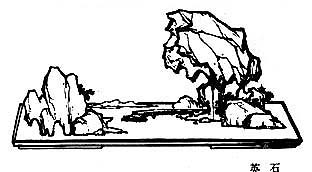Lun Yu 
 – Les Entretiens de Confucius
– Les Entretiens de Confucius
Le Maître échange propos, anecdotes, brèves paraboles et maximes avec ses disciples. Tr. Couvreur (fr), Legge (en) et Lau (en).
Lunyu X. 18. (258)
Quand le prince lui envoyait un mets tout préparé, il le goûtait sur une natte convenablement disposée1. Quand le prince lui envoyait de la viande crue, il la faisait cuire, et l'offrait aux défunts. Quand le prince lui donnait un animal vivant, il le nourrissait. Lorsqu'il mangeait au palais à côté du prince, au moment où celui-ci offrait des mets aux défunts, Confucius goûtait les mets2. [...]
Couvreur X.13.
Demeanor of Confucius in relation to his prince.
1. When the prince sent him a gift of cooked meat, he would adjust his mat, first taste it, and then give it away to others. When the prince sent him a gift of undressed meat, he would have it cooked, and offer it to the spirits of his ancestors. When the prince sent him a gift of a living animal, he would keep it alive.
2. When he was in attendance on the prince and joining in the entertainment, the prince only sacrificed. He first tasted everything. [...]
Legge X.13.
When his lord gave a gift of cooked food, the first thing he invariably did was to taste it after having adjusted his mat. When his lord gave him a gift of uncooked food, he invariably cooked it and offered it to the ancestors. When his lord gave him a gift of a live animal, he invariably reared it. At the table of his lord, when his lord had made an offering before the meal he invariably started with the rice first.
Lau [10:18]

Les Entretiens de Confucius – Lun Yu X. 18. (258) – Chinois off/on – Français/English
Alias the Lunyu, the Lun Yü, the Analects, les Entretiens du maître avec ses disciples.
Le Canon des Poèmes, Les Entretiens, La Grande Étude, Le Juste Milieu, Les Trois Caractères, Le Livre des Mutations, De la Voie et la Vertu, 300 poèmes Tang, L'Art de la guerre, Trente-six stratagèmes
Bienvenue, aide, notes, introduction, table.
Index – Contact – Haut de page























